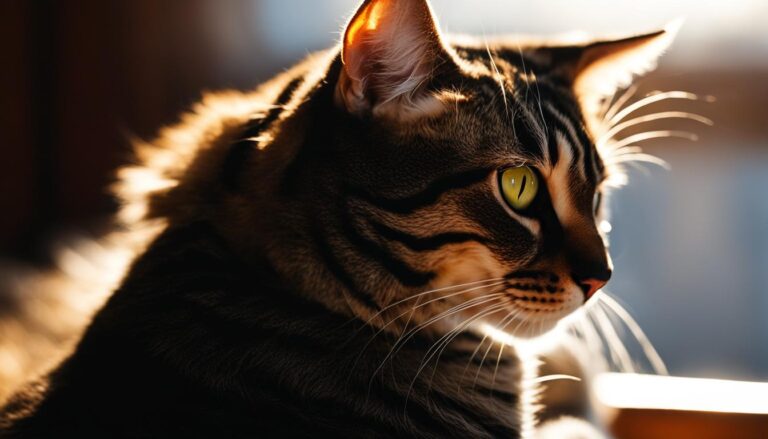Fleas can be a pesky problem for our feline friends, causing discomfort and potential health risks. Whether you’re dealing with an infestation or looking for preventative measures, it’s essential to know how to get rid of fleas on cats effectively. In this article, we’ll explore various treatments and solutions to help you keep your cat flea-free and happy.
https://www.youtube.com/watch?v=0jCyj-EVdF8
If you’ve ever wondered how cats get fleas or what the signs of a flea infestation are, you’re in the right place. We’ll cover everything from the common sources of fleas to the symptoms to look out for. You’ll also discover the best flea treatments for cats, including topical solutions, shampoos, and natural remedies.
Remember, prevention is key! We’ll share expert tips on flea prevention, such as using flea collars and maintaining a clean environment. With the right knowledge and practices, you can say goodbye to fleas and keep your furry companion itch-free.
Principaux enseignements
- Regular grooming and maintaining a clean environment are essential for flea prevention.
- Consult a veterinarian for the best flea treatment options for your cat.
- Topical treatments, flea shampoos, and natural remedies can effectively eliminate fleas.
- Consider using flea collars and oral medications for long-term flea control.
- Stay vigilant and be aware of the symptoms of flea infestation to address the issue promptly.
How do Cats Get Fleas?
Cats can easily pick up fleas from various sources, including kennels, grooming facilities, and the outdoors. While indoor cats are generally at a lower risk of getting fleas, cats that have access to the outdoors are more likely to encounter these pesky pests. Fleas are resilient creatures that can jump onto a host, such as a cat, and quickly start feeding and reproducing in their fur.
The most common flea species that infest cats is the cat flea (Ctenocephalides felis). These fleas have the ability to jump onto a cat and start their life cycle. They feed on the cat’s blood and lay eggs in the fur. These eggs can then fall off the cat and develop into larvae, pupae, and eventually adult fleas, starting the cycle all over again.
Common Flea Species
Here are some common flea species that may infest cats:
| Flea Species | Description |
|---|---|
| Cat Flea (Ctenocephalides felis) | The most common flea species that infests cats. They are small, dark brown insects that are excellent jumpers. |
| Dog Flea (Ctenocephalides canis) | While primarily found on dogs, dog fleas can also affect cats. They are larger than cat fleas and have a broader host range. |
| Human Flea (Pulex irritans) | Although less common, human fleas can infest cats. They are usually found in crowded areas and can cause discomfort for both humans and pets. |
Indoor Cats and Fleas
Even though indoor cats have a lower risk of getting fleas, it’s still possible for them to become infested. Fleas can hitch a ride into your home through other animals, such as dogs or rodents, or even on your clothing. It’s always a good idea to regularly check and groom your indoor cat for any signs of fleas, especially if they have been in contact with other animals or have spent time outdoors.
By understanding how cats get fleas, you can take the necessary precautions to prevent infestations and keep your feline companion comfortable and flea-free.
Symptoms of Fleas on Cats
Fleas can cause discomfort and health problems for cats. To effectively address a flea infestation, it is important to be able to recognize the symptoms. Here are some signs that your cat may have fleas:
- Excessive scratching, especially around the head and ears
- Licking or biting at the fur
- Fur loss
- Redness and inflammation
- Presence of black particulate matter on the skin (known as flea dirt)
- Discomfort and restlessness
If you notice any of these symptoms, it is crucial to consult a veterinarian for a proper diagnosis.
“Fleas can cause discomfort and health problems for cats. To effectively address a flea infestation, it is important to be able to recognize the symptoms.”
It is important to understand that these symptoms can also be indicative of other conditions, such as allergies or skin infections. Therefore, it is essential to seek professional advice to confirm a flea infestation and rule out any other potential causes. A veterinarian will be able to perform a thorough examination and recommend appropriate treatment options for your cat’s specific needs.

| Treatment Type | Key Features | Recommended Brands |
|---|---|---|
| Topical Treatments | Easy to apply, long-lasting protection | Frontline, Advantage |
| Spot-On Treatments | Convenient, effective for up to a month | Revolution, Cheristin |
| Flea Shampoos | Kills fleas on contact, provides immediate relief | Adams, Vet’s Best |
Conclusion
Congratulations on learning how to get rid of fleas on cats and taking steps to protect your furry friend. By following the tips and solutions provided in this article, you can effectively eliminate fleas and prevent future infestations. Remember, flea prevention is key to keeping your cat happy and healthy.
To keep your cat flea-free, make sure to regularly groom them and use veterinarian-recommended flea prevention products. These products, such as topical treatments and flea collars, can provide long-lasting protection against fleas. Additionally, maintaining a clean environment by vacuuming regularly and washing bedding can help prevent a flea infestation.
If you suspect your cat has a flea infestation, it is important to consult a veterinarian for the best course of treatment. They can recommend the most suitable flea medications and guide you on how to administer them effectively. Your veterinarian will also help rule out any other potential causes for your cat’s discomfort.
By following these flea prevention tips and promptly addressing any infestations, you can ensure a happy and healthy life for your beloved feline companion. Remember, prevention is always better than cure when it comes to fleas, so stay vigilant and take proactive measures to protect your cat from these pesky parasites.




